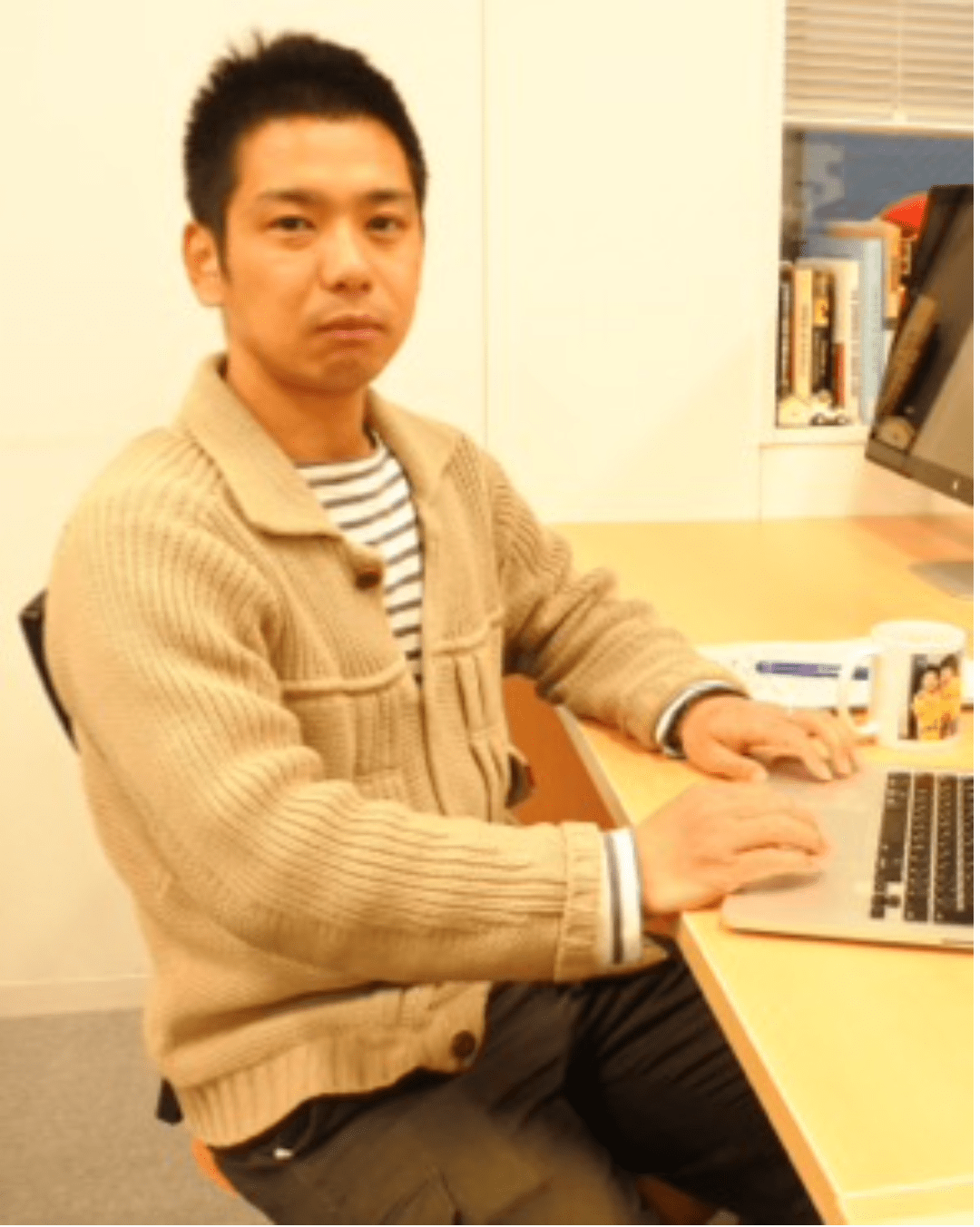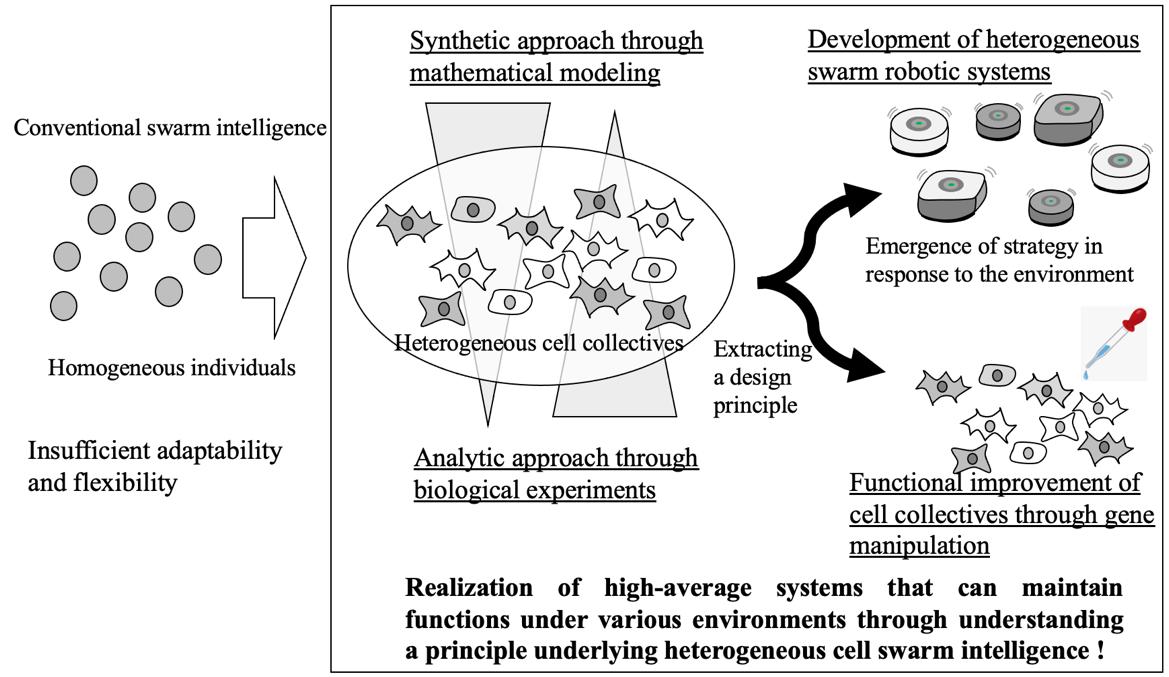Research Outline
GREETING

Takeshi Kano
School of Systems Information Science, Future University Hakodate
Principle of expression of intelligent behavior exhibited by heterogeneous cell populations for engineering and medical applications
“Swarms” of living organisms behave intelligently as if the entire group were a single individual with a will. This behavior is emergently generated by local interactions among the components of the swarm (hereinafter referred to as "autonomous individuals") and is referred to as “swarm intelligence.” This study aims to elucidate the design principles of heterogeneous swarm intelligence systems, in which autonomous individuals with various characteristics find appropriate roles in a fluctuating environment, create order, and continue to demonstrate high functionality.
In this area, we focus particularly on moving swarms of cells. Several tissues in living organisms are composed of various cells, and even if we focus only on a group of cells of the same type, the properties of each cell are heterogeneous owing to fluctuations in gene expression. A single cell has a very limited computational capacity, but by appropriately changing its internal state and role while interacting with individual cells with different properties, it can adapt to a fluctuating environment and exhibit superior functions as a whole.
We aim to clarify the expression principle of the intelligent behavior of this swarm of cells by combining high-precision real data analysis using biological methods and a constructivist approach using mathematical modeling. Furthermore, we would like to apply the extracted control principles to the development of swarm robots and regenerative medicine by artificially manipulating cellular swarms to demonstrate their versatility and applicability.

PROJECT OUTLINE
| Group A01 | Project Leader | Takeshi Kano (School of Systems Information Science, Future University Hakodate) |
|---|---|---|
| Co-Project Leader | Yuichiro Sueoka (Graduate School of Engineering, Osaka University) | |
| Project Assistant Professor | Daiki Wakita (2022.7-2024.3: Research Institute of Electrical Communication, Tohoku University) | |
| Theme | A design theory of high-average systems made possible by constructive understanding of heterogeneous swarm intelligence |
| Group A02 | Project Leader | Daiki Umetsu (Graduate School of Science, Osaka University) |
|---|---|---|
| Theme | Muscle cell swarm intelligence: Understanding the phase-transition dynamics of muscle remodeling during insect metamorphosis |
| Group A03 | Project Leader | Naoko Kaneko (Graduate School of Brain Science, Doshisha University) |
|---|---|---|
| Co-Researcher | Yuriko Sobu (Graduate School of Brain Science, Doshisha University) | |
| Theme | Swarm intelligence of newborn neurons: Understanding behaviors and control rules that determine the efficiency of brain regeneration |
| Group A01 | ||
|---|---|---|
| Project Leader | Takeshi Kano (School of Systems Information Science, Future University Hakodate) | |
| Co-Project Leader | Yuichiro Sueoka (Graduate School of Engineering, Osaka University) | |
| Project Assistant Professor | Daiki Wakita (2022.7-2024.3: Research Institute of Electrical Communication, Tohoku University) | |
| Theme | A design theory of high-average systems made possible by constructive understanding of heterogeneous swarm intelligence | |
| Group A02 | ||
|---|---|---|
| Project Leader | Daiki Umetsu (Graduate School of Science, Osaka University) | |
| Theme | Muscle cell swarm intelligence: Understanding the phase-transition dynamics of muscle remodeling during insect metamorphosis | |
| Group A03 | ||
|---|---|---|
| Project Leader | Naoko Kaneko (Graduate School of Brain Science, Doshisha University) | |
| Co-Researcher | Yuriko Sobu (Graduate School of Brain Science, Doshisha University) | |
| Theme | Swarm intelligence of newborn neurons: Understanding behaviors and control rules that determine the efficiency of brain regeneration | |

